Attention-deficit/hyperactivity disorder, or ADHD, is a mental health condition that can make it difficult or impossible for women and girls to control their thoughts and behaviors. Symptoms of ADHD commonly begin to appear during childhood or early adolescence, but they can persist into adulthood.
As noted by the advocacy organization Children and Adults with Attention-Deficit/Hyperactivity Disorder (CHADD), girls and women who struggle with ADHD can experience significant psychological distress.
Attention-deficit/hyperactivity disorder is a treatable condition. When women and girls receive individualized ADHD treatment, they can learn to manage the symptoms of ADHD and achieve an improved quality of life.
Signs & Symptoms of ADHD
The signs and symptoms of attention-deficit/hyperactivity disorder can vary considerably among women and girls. However, generally speaking, the following are common ADHD signs and symptoms:
- Inability to pay attention for a sustained amount of time
- Frequently making careless mistakes
- Appearing not to listen when being spoken to
- Failing to finish tasks or projects
- Easily becoming frustrated
- Often losing books, keys, glasses, cellphone, and other important items
- Forgetting to pay bills, keep appointments, or take care of other responsibilities
- Having trouble sitting still in class, restaurants, or meetings; always appearing to be “on the go”
- Tendency to fidget, squirm, or tap hands and feet
- Interrupting others or intruding on activities
- Talking excessively
- Using items that belong to others without asking for permission
Woman and girls do not need to exhibit every sign and symptom of ADHD in order to be accurately diagnosed with attention-deficit/hyperactivity disorder. The only way to determine if you need treatment for ADHD is to complete a thorough assessment with a qualified healthcare provider.
Is ADHD Common Among Women & Girls?
The following ADHD statistics were reported by the National Institute of Mental Health:
- ADHD impacts about 3.2% of adult women.
- About 4.2% of adolescent girls ages 12-18 develop ADHD.
- Approximately 33% of children who are diagnosed with attention-deficit/hyperactivity disorder will continue to have ADHD symptoms as adults.
Potential Effects of ADHD
Undiagnosed or untreated attention-deficit/hyperactivity disorder can have a powerful negative impact on women and girls. The potential effects of ADHD include:
- Difficulty forming or maintaining friendships
- Strained relationships with family members
- Academic struggles and behavior problems in school
- Poor performance at work
- Inability to find and keep a job
- Injuries due to inattentive behaviors
- Financial problems
- Substance use and addiction
- Onset or worsening of other mental health concerns
- Social withdrawal or isolation
- Diminished self-confidence and self-esteem
- Increased risk of suicidal thoughts and actions
Getting ADHD treatment can help you manage the symptoms of this disorder, which reduces your risk for experiencing the negative effects of attention-deficit/hyperactivity disorder. While you’re receiving care at our ADHD treatment center, you can also begin to heal from any harm that you may have already experienced due to your struggles with ADHD.
How to Choose an ADHD Treatment Center
When you are seeking treatment for attention-deficit/hyperactivity disorder, it’s vital to determine if an ADHD treatment center offers the type and level of care that’s right for you. There is no single perfect type of treatment for ADHD. Just because an ADHD treatment plan works well for another girl or woman doesn’t mean that it’s the ideal approach for you.
One of the most important factors in ADHD treatment is understanding which level or levels of care you need. At Timberline Knolls Residential Treatment Center, we offer ADHD treatment services at two levels: residential treatment and a partial hospitalization program, or PHP.
When you take part in residential ADHD treatment, you will benefit from round-the-clock care provided by a team of experienced professionals. At this level of ADHD treatment, you can focus fully on your health without having to deal with the stresses and distractions of daily life. Our residential ADHD program serves adolescent girls ages 12-17 and adult women age 18 and older.
When you participate in ADHD treatment at the PHP level, you’ll take part in full days of programming, but you won’t be required to live at our ADHD treatment center. When you’re not taking part in ADHD treatment, you can return home, or you may choose to reside in one of our on-campus residences. This level of ADHD treatment is designed for adult women only.
A member of the Timberline Knolls Residential Treatment Center team can provide you with additional details about both levels of ADHD treatment so that you’ll be prepared to make the most informed decision.
Types of Therapy to Treat ADHD
In addition to learning about the different levels of treatment for attention-deficit/hyperactivity disorder, it’s also important to understand the many types of therapy that can be included in an ADHD treatment plan.
When you receive care at our ADHD treatment center, you’ll follow an individualized plan that is based on a thorough assessment of your strengths, needs, goals, and preferences.
Depending on those factors, and at which level of care you receive treatment, your individualized ADHD treatment plan may include nonmedical ambulatory detox; medication management services; individual, group, and family sessions; and experiential therapies.
Your treatment for ADHD may also incorporate acceptance and commitment therapy (ACT), dialectical behavior therapy (DBT), motivational interviewing, 12-Step principles, and cognitive behavioral therapy (CBT).
A member of your ADHD treatment team will explain each element of your plan and answer any questions you have. At Timberline Knolls Residential Treatment Center, we’re committed to ensuring that all women and girls have the information they need so they can play an active role in their ADHD treatment.
Your Pathway to ADHD Treatment
When you’re ready to get ADHD treatment, Timberline Knolls Residential Treatment Center is here for you. We’ve developed a streamlined process so you can get the ADHD treatment you need with minimal delay. Here is a quick overview of your path to ADHD treatment:
- Phone conversation with a member of our admissions team (available 24/7)
- Initial over-the-phone screening to make sure our ADHD treatment center is the ideal place for you
- Admissions process, which a member of our team will guide you through
- Scheduling your intake date and arriving at our campus
- Meeting the members of your ADHD treatment team and other residents
- Becoming familiar with our treatment environment
- Completing physical and psychological evaluations
- Receiving your individualized ADHD treatment plan
- Starting ADHD treatment
You can learn more about these steps here.
This content was reviewed and approved by the clinical staff at Timberline Knolls Residential Treatment Center.







